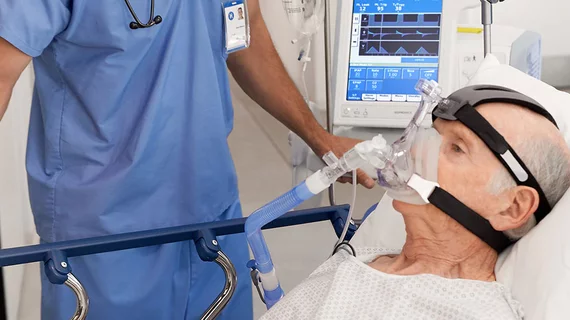The U.S. Food and Drug Administration (FDA) has recalled more ventilators manufactured by Philips.
The latest recall, which impacts certain V60 and V60 Plus ventilators, is another blow to Philips. Philips voluntarily recalled certain sleep and respiratory care products in June 2021 after potential health risks related to the polyester-based polyurethane (PE-PUR) sound abatement foam in these devices were identified.
The FDA’s latest Class I recall, the most serious type of recall due to the possibility of severe injury or death, of V60 and V60 Plus ventilators is due to the parts of the device being put together with an expired adhesive. The ventilators are used in hospitals or other institutional settings to provide mechanical ventilation for adults and children who can breathe on their own. For example, patients who use the devices may be affected by respiratory failure, chronic respiratory insufficiency or obstructive sleep apnea. The risk of the expired adhesive could cause failure of the machines.
“If the adhesive fails, it could cause a capacitor support bracket to become loose and potentially damage the capacitors, which could cause the ventilator to stop providing ventilation to the patient,” the FDA’s recall stated. “This failure may cause an alarm to notify the healthcare provider, or it may not sound any alarm at all.”
While there have been no reports of injuries, adverse health consequences or death associated with the use of these devices, patients could be without ventilation support for potentially an extended time that could cause serious harm, with or without an alarm sounding.
Previously, Philips initiated a recall of certain Philips Respironics ventilators, continuous positive airway pressure (CPAP) and bilevel positive airway pressure (BiPAP) machines.
Philips Respironics reached out to customers and patients about the issue. The company reacted with a repair and replacement program, which is on track to be completed in the fourth quarter of 2022. Phillips has shipped a total of 650,000 replacement devices to customers in the U.S., the company stated March 10.

